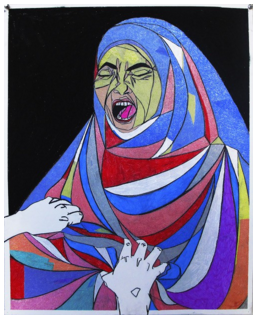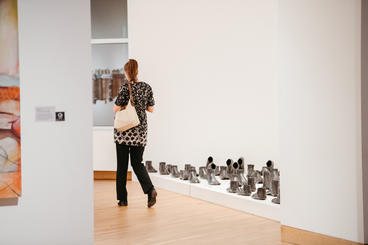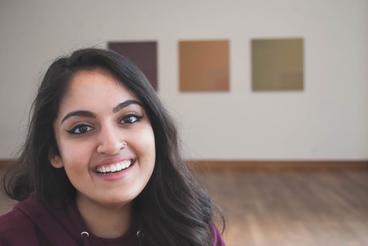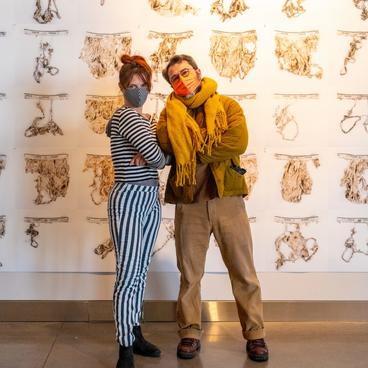As you might know, especially if you read Lauren Gengler’s blog post on Monday, this week is the Guerrilla Girls Twin Cities Takeover. There are events going on throughout the week all over Minneapolis and St. Paul, all culminating in a final performance at the State Theatre this Saturday, March 5.
One event I'm particularly interested in is happening TONIGHT! Seven Twin Cities based artists have been brought together by curator and Guerrilla Girl Intern Sara Suppan (MCAD '15) for the Self/Concept: Reception and Panel Discussion. These artists have explored the idea of personal identity as it may relate to race, gender, religion, class, etc. They have worked to critically represent themselves through a wide range of media, including video, print, painting, photography and more.
The exhibition will also include a panel discussion lead by Megan Johnson, an original integrator of the Twin Cities Takeover, and Sara Suppan.
I was lucky enough to talk with Sara about the event and her internship with the Guerrilla Girls. Here is some of what she had to say about her experience and the Self/Concept exhibition taking place at the MCAD Gallery tomorrow evening. Hope to see you all there!

How did you get involved with the Guerrilla Girls?
I got involved in the Twin Cities Takeover after completing the Gender, Art, and Society class at MCAD. My professor, Megan Johnston, asked if I wanted to meet the Guerrilla Girls on their preliminary visit to Minneapolis. Our class hadn't talked about their work, actually, but they were in my Art History 1 textbook. I was interested. I did not know at the time the extent of the project that would ensue, or that I would start an internship.
Can you tell me a little bit about your intern position?
My internship was with the MCAD Gallery under its director Kerry Morgan. It began two years ago. My initial responsibility was to research what the Guerrilla Girls had done with cities and schools in the past, to get a sense of what we should ask for. I also researched MCAD's archive of student newspapers to find what issues art students raised thirty years ago that might still be relevant. Kerry lead the Steering Committee meetings which would determine how funds would be raised, and which goals we would aim for. Through the meetings, I was introduced to team members from the Walker, Mia, Hennepin Theatre Trust, and others. Perhaps the best part of my internship was witnessing a whole network of local artists and art institutions connect.
For those who can't make it, could you explain what the Self/Concept Reception and Discussion is and how it fits into the GG Twin Cities Takeover?
Toward the end of my internship, I curated an exhibition of seven local artists who are invested in self-representation. The term "Self-concept" refers to the sum of identities that answer to the question of who one is. The artists I chose do something important simply by making race, gender expression, religion, and nationality visible within the gallery context. The work spans painting, print, video, and multimedia. [Tonight, Thursday evening] will be the reception for the show. Megan Johnston and I will speak with participating artists Christopher Harrison and Dani Wagner about their approach to identity and art. I hope to investigate whether there is a pressure to perform when one could be labeled a "Trans artist", "African American artist", "Queer artist", or any other variation on these titles. And if this pressure exists, is there good reason right now to submit to it?
Do you have any advice for young/emerging artists in the world of feminism/equality?
The advice I would give to young artists has come from some of the experiences I had on this internship. Before, I struggled to understand why anyone would not identify themselves as Feminist with a capital F. Now I have a more clear understanding of the historical conflict feminism has had with other marginalized groups. If the word "feminism" will continue to be used, a new and more inclusive brand must emerge. It begins in dialogue with past generations of feminists and then with a look to the contemporary. It requires an open mind and open ears, and I think we are on the way. Already, my generation is questioning the validity of a binary gender system, is looking at the different race-gender intersectional experiences, and is thinking more globally. My advice is to carry the torch of past feminism, but to take it farther, and not look back.



